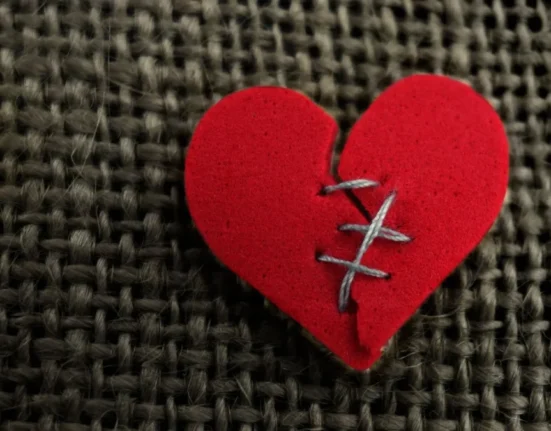Last Updated on January 27, 2022 by Rachel Hall
End the relationship
Let’s start with the really obvious, if uncomfortable answer. You could leave them. If you have trust issues with your partner, you can collect your things and dump him/her. If you don’t trust him/her, the chances are that this relationship is not making you happy, which is really the primary purpose anyway. Sometimes things are not worth trying to fix, and you can simply walk away, make a clean break – no late-night checks of their Instagram, no gossiping with mutual friends – and spend some time, single, fixing your broken heart. It’s a lot of immediate pain, and I don’t want to minimise that, but you can put yourself back together, make new friends, try new hobbies, and know that the awfulness won’t last forever.
Couples’ therapy
If you do decide that you want to stay with your untrustworthy partner, the first stop is some couples’ therapy. Typing this makes me realise that if you’ve had your confidence crushed or your trust betrayed by a significant other, you might not feel comfortable suggesting this, but if that’s the case then I urge you, once again, to refer to my answer above. If your partner has betrayed you, they should want to fix things. If they don’t, you shouldn’t be with them. Couples’ therapy can be a safe and healthy place for people to work out the difficulties in their relationship and find a way to move past trust issues and into a new, loving relationship based on respect.
Symptoms of trust issues

It’s worth thinking about the symptoms of trust issues. Whether one partner has betrayed the other or not, either person having trust issues can be extremely uncomfortable for both parties. Let’s call the person with trust issues “A” and the other partner “B”. “A” spends a lot of time worrying that “B” doesn’t love them, or might cheat on them, or is only dating them for a selfish reason and not because of genuine love and affection. This causes constant stress for “A” and affects their physical and mental health, friendships and work. If things get really unhealthy, “A” might try to check up on “B” by doing things like going through their phone, which is abuse and shows a lack of respect for boundaries. Now, from “B’s” perspective, things are also not great. “B” might feel guilty for hurting “A”, and possibly have second thoughts about the relationship, which could lead to even more guilt. If “B” didn’t do anything wrong, like being unfaithful, they might be concerned that “A” is projecting and could also end up developing trust issues. Much like “A”, “B” might experience some symptoms of trust issues like stress or distraction that could impact other parts of their life. All of this, I hope, explains why trust is important in a relationship: without it, both parties are unhappy.
Observing your partner
Even if you trust your partner and have never had any cause to doubt them, it’s a good idea to make sure that they do not distrust you. It works both ways: either – or both – parties might feel concerned, and so it’s good to be reassuring and respectful. Ultimately, you’re probably the best person to work out if your significant other is feeling anxious, and if you think they are, discuss it with them.
Trust issues outside of romantic relationships
Trust issues are not necessarily restricted just to romantic relationships. Some people might think that they can’t trust anyone, and try to maintain all of their relationships without trust. It’s worth exploring the root of these issues in depth, and a therapist can help with that. If you’ve been betrayed by a girlfriend or boyfriend in the past, that can impact your current relationships, or it could be something that happened in your childhood or adolescence that’s remained unresolved. Sorting out these underlying problems can help to improve all aspects of your life and allow you to rebuild relationships.
Conclusion
Relationships are difficult, and all of them go through rough patches from time to time. Just because two people love each other and have shared interests and chemistry doesn’t mean that they won’t fight or have problems trusting each other sometimes. Remember that you and your partner are on the same team and should be working together to solve problems, and that can involve supporting each other and finding solutions that work for both of you. It’s not impossible to repair trust in a relationship, but it does take time, communication and commitment, and it won’t always be easy. Both of you need to think, honestly, if you’re ready to do this, before you take the first step, because if you don’t, it’s much better to just walk away.

Rachel Hall, M.A., completed her education in English at the University of Pennsylvania and received her master’s degree in family therapy from Northern Washington University. She has been actively involved in the treatment of anxiety disorders, depression, OCD, and coping with life changes and traumatic events for both families and individual clients for over a decade. Her areas of expertise include narrative therapy, cognitive behavioral therapy, and therapy for traumatic cases. In addition, Rachel conducts workshops focusing on the psychology of positive thinking and coping skills for both parents and teens. She has also authored numerous articles on the topics of mental health, stress, family dynamics and parenting.








Leave feedback about this